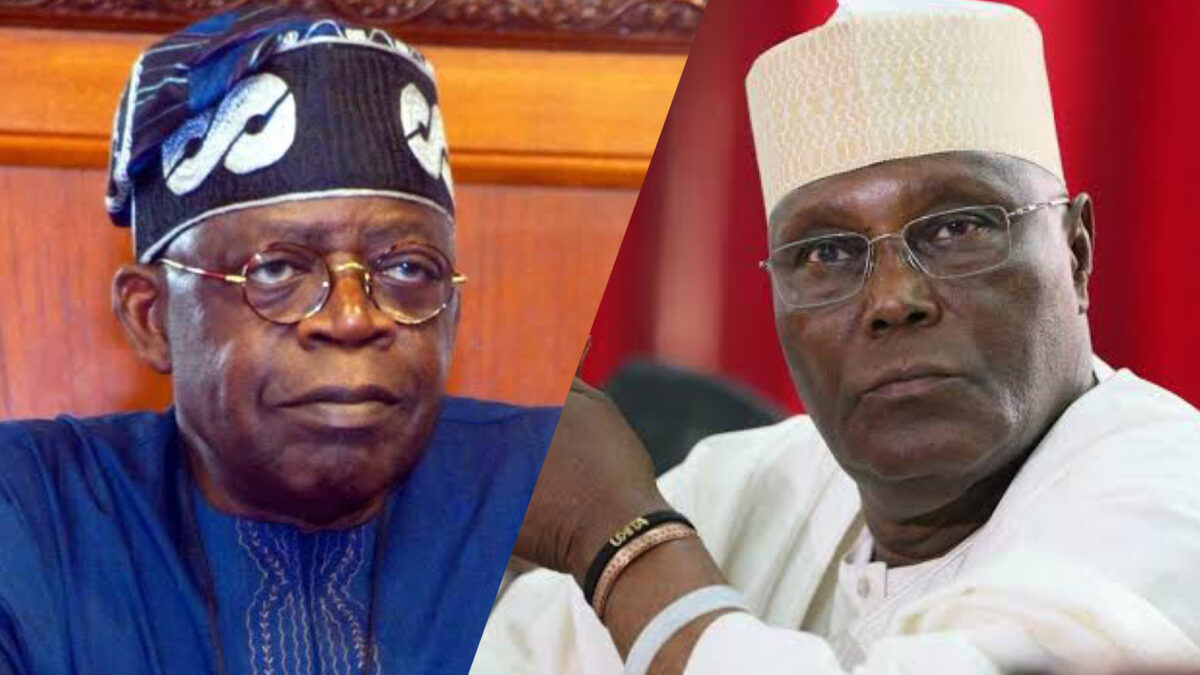In a significant development regarding the presidential election held on February 25, Atiku Abubakar, the presidential candidate of the Peoples Democratic Party, has called upon the Supreme Court to allow him to present new evidence in support of his claim that President Bola Tinubu forged the documents he submitted to the Independent National Electoral Commission (INEC).
Atiku emphasized the gravity of presenting forged documents by any candidate, especially one vying for the highest office in the country, asserting that this is a serious constitutional issue that must not be condoned.
The request to introduce fresh evidence was submitted in response to objections raised by President Bola Tinubu, who labeled the application as a blatant abuse of court processes.
Atiku, in his legal response, urged the court to set aside technicalities and grant his application.
He argued that determining the merit of the case should not occur at the interlocutory stage, and refusal to grant leave for fresh evidence would be an instance of undue technicality. This ongoing legal battle continues to captivate public attention as it unfolds in the country’s highest court.
“The Supreme Court, as the Apex Court and indeed the Policy Court, has intervened time and again to do substantial justice in such matters of great constitutional importance, as it did in the case of AMAECHI vs. INEC (2008) 5 NWLR (Pt. 1080) 227 and OBI vs. INEC (2007) 11 NWLR (Pt. 1046) 565. The Supreme Court applied the principle of ubi jus ibi remedium to ensure substantial justice is done in such novel scenarios.
“The need to rebuff, eschew, and reject technicality and the duty of Court to ensure substantial justice is very germane in this matter, given the gravity of the constitutional issue involved in deciding whether a candidate for the highest office in the land, the office of President of the Country, presented a forged certificate or not.
“In urging the Honourable Court to overrule the objections of the Respondents, we can do no better than to commend to your noble Lordships the insightful words of the Supreme Court in ASSAH & ORS V. KARA & ORS (2014) LPELR-24212(SC), per Rhodes-Vivour, JSC as follows:
“Law is blind. It has no eyes. It cannot see. That explains why a statue of a woman with her eyes covered can be found in front of some High Courts. On the contrary, justice is not blind. It has many eyes, it sees and sees very well.
‘The aim of Courts is to do substantial justice between the parties and any technicality that rears its ugly head to defeat the cause of justice will be rebuffed by the Court, ” he stated.
Atiku stated that his stance was not if Tinubu attended the Chicago State University or not, adding that Tinubu presented a forged certificate to INEC.
“That the case is not whether the 2nd Respondent attended Chicago State University but whether he presented a forged certificate to the Independent National Electoral Commission (INEC).
“That at the trial, a National Youth Service Corps certificate with serial number 173807 presented by the 2nd Respondent to the 1st Respondent was equally tendered by the Appellants/Applicants at the trial as “EXHIBIT PBD 1A” with the name Tinubu Bola Adekunle, which is annexed herewith as EXHIBIT “J”.
Also, Atiku described Tinubu’s allegation that he was not consistent with his name as immaterial and pedestrian.
Atiku held that there was no petition challenging his qualification.
“That it is immaterial that the 1st Respondent had since June 24th, 2022 published the fictitious credentials of the 2nd Respondent as presentation of a forged certificate by a candidate for election to the office of President of the Federal Republic of Nigeria is a post-election matter under Section 137 (1) (j) of the Constitution”.
In a 20-paragraph affidavit in support of the application, deposed to by one Uyi Giwa-Osagie, he noted that should the Apex Court grant his application, adding that there would be no need for argument.
He said, “There would be no need for any further argument other than the written address in support of same showing that the 2nd Respondent is in violation of the provisions of Section 137 (1) (j) of the Constitution by presenting a certificate disclaimed by the institution from where he purportedly procured same.



